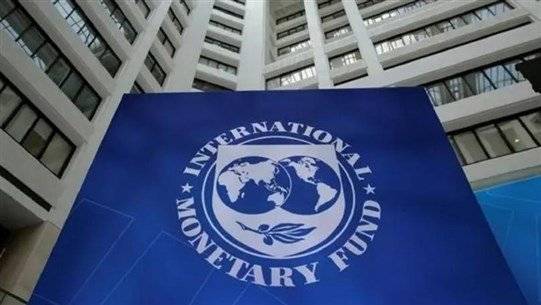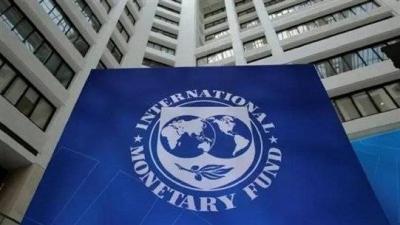The Lebanese government is racing against time to complete the economic and financial file along with the accompanying legislative package, which it aims to present early at the upcoming Autumn meeting of the International Monetary Fund Board of Governors, scheduled for early September. This effort is ongoing regardless of the outcomes of forming the new government, as President Najib Mikati holds dual roles as the designated prime minister and the head of the caretaker government, which continues its functions.
Ministerial sources have anticipated a qualitative push in this file starting next week, driven by Mikati's personal involvement in meetings of relevant parliamentary committees, primarily the Finance and Budget Committee. The committee has called for an extraordinary meeting next week to discuss two main topics: the current year's budget and the legislation related to the recovery plan. The committee, which expects additional participation from non-member deputies if the Prime Minister confirms his attendance, seeks concrete answers regarding the proposed 2022 budget and discussions that took place before the parliamentary elections. It aims to ascertain whether the proposed figures are still valid today, considering the financial and monetary criteria that the government relied on in the budget proposal to achieve revenues and other related rates concerning deficits and growth.
According to sources, the Prime Minister is expected to present "revised" proposals regarding the core point of contention with the financial sector about distributing responsibilities and estimated losses amounting to approximately $73 billion. This is in line with the priority of "acknowledging the losses initially and working on their distribution," as part of updated directions intended primarily to allay the fears of bank depositors who are apprehensive about substantial deductions resulting from the proposal adopted in the financial rescue memorandum, which calls for the write-off of around $60 billion from banks' placements with the central bank to bridge the gap recorded in its budget.
There have also been reports of a new vision from the Prime Minister concerning proposals to establish a sovereign fund aimed at activating public financial resources and improving the investment of assets owned by the public sector. This would allow the state to share a significant portion of the losses incurred by it or by the central bank, considered a public sector institution and the primary financier of its financial needs and budget deficits, according to cumulative disclosures that nearly reached $62 billion, recently revealed by the central bank governor. This ensures reaching a "fair" distribution equation with the banking sector while preserving full deposit rights up to $100,000 and reducing deductions for higher tiers.
Approving the budget draft law is a primary condition of the legislative package included in the initial agreement with the IMF mission, which has been officially disclosed as a preliminary agreement at the expert level regarding economic policies with Lebanon, aiming to benefit from the "Extended Fund Facility" for four years. This agreement is subject to approval by the fund's senior management and its executive board after fulfilling all required prior actions and confirming financial support from international partners in exchange for accessing resources from the fund valued at 2,173.9 million Special Drawing Rights, equivalent to about $3 billion.
Complying with improving public finances and reducing public debt requires adopting measures to generate revenues and administrative reforms to ensure a more equitable and transparent distribution of the tax burden. The 2022 budget is a key step in this direction; it should aim for a primary deficit of 4% of GDP backed by adjusting the valuation of imports for customs and tax purposes based on a unified exchange rate. This would allow for increased allowances for public sector employees to resume the activity of public administration and enhance social spending to protect the most vulnerable. The budget deficit will be financed through external funding, and the procedure allowing financing from the central bank will be abolished.
The complementary legislative package is as significant as approving the budget, which the fund's administration considers essential as a starting point for structural financial reforms. The financial legislation related to the recovery plan, whose approval was delayed due to the timing of the parliamentary elections mid-last month, requires exceptional efforts to reach clear and final formulations to expedite its approval in parliamentary committees and subsequent endorsement by the general assembly, especially since it outlines the road map for the sought-after rescue and the structural reforms needed to unlock the desired international community support.
Among the primary legislations that the government is expected to present clear and nearly final proposals on, as part of its prior commitment to undertake several vital reforms before presenting the file at the fund's executive board meeting, are the draft laws related to imposing exceptional capital controls and proposed amendments to the banking secrecy law, as well as the bank restructuring program as part of the financial sector restructuring project aimed at restoring banks' sustainability and their ability to allocate resources efficiently to support recovery.
The Lebanese authorities, under the commitments in the initial agreement, must establish a reliable and transparent monetary and exchange system, through the central bank unifying exchange rates for authorized current account transactions, which is crucial for enhancing economic activity, restoring credibility, and ensuring the soundness of the external situation. This should also be guided by overall targets leading to conditions that enable inflation to decline and rebuild foreign currency reserves while maintaining a unified exchange rate determined by the market, which will help the financial sector function, improve resource allocation in the economy, and absorb external shocks.




